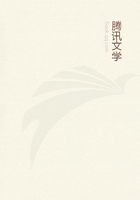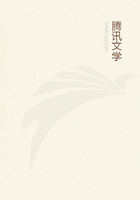Tess's feminine hope - shall we confess it - had been so obstinately recuperative as to revive in her surreptitious visions of a domiciliary intimacy continued long enough to break down his coldness even against his judgment.Though unsophisticated in the usual sense, she was not incomplete;and it would have denoted deficiency of womanhood if she had not instinctively known what an argument lies in propinquity.Nothing else would serve her, she knew, if this failed.It was wrong to hope in what was of the nature of strategy, she said to herself; yet that sort of hope she could not extinguish.
His last representation had now been made, and it was, as she said, a new view.She had truly never thought so far as that, and his lucid picture of possible offspring who would scorn her was one that brought deadly conviction to an honest heart which was humanitarian to its centre.Sheer experience had already taught her that, in some circumstances, there was one thing better than to lead a good life, and that was to be saved from leading any life whatever.Like all who have been previsioned by suffering, she could, in the words of M.Sully-Prudhomme, hear a penal sentence in the fiat, `You shall be born,' particularly if addressed to potential issue of hers.
Yet such is the vulpine slyness of Dame Nature, that, till now, Tess had been hoodwinked by her love for Clare into forgetting it might result in vitalizations that would inflict upon others what she had bewailed as a misfortune to herself.
She therefore could not withstand his argument.But with the self-combating proclivity of the super-sensitive, an answer thereto arose in Clare's own mind, and he almost feared it.It was based on her exceptional physical nature; and she might have used it promisingly.She might have added besides:
`On an Australian upland or Texan plain, who is to know or care about my misfortunes, or to reproach me or you?' Yet, like the majority of women, she accepted the momentary presentment as if it were the inevitable.And she may have been right.The intuitive heart of woman knoweth not only its own bitterness, but its husband's, and even if these assumed reproaches were not likely to be addressed to him or to his by strangers, they might have reached his ears from his own fastidious brain.
It was the third day of the estrangement.Some might risk the odd paradox that with more animalism he would have been the nobler man.We do not say it.Yet Clare's love was doubtless ethereal to a fault, imaginative to impracticability.With these natures, corporeal presence is sometimes less appealing than corporeal absence; the latter creating an ideal presence that conveniently drops the defects of the real.She found that her personality did not plead her cause so forcibly as she had anticipated.The figurative phrase was true: she was another woman than the one who had excited his desire.
`I have thought over what you say,' she remarked to him, moving her forefinger over the tablecloth, her other hand, which bore the ring that mocked them both, supporting her forehead.`It is quite true all of it;it must be.You must go away from me.'
`But what can you do?'
`I can go home.'
Clare had not thought of that.
`Are you sure?' he inquired.
`Quite sure.We ought to part, and we may as well get it past and done.
You once said that I was apt to win men against their better judgment;and if I am constantly before your eyes I may cause you to change your plans in opposition to your reason and wish; and afterwards your repentance and my sorrow will be terrible.'
`And you would like to go home?' he asked.
`I want to leave you, and go home.'
`Then it shall be so.'
Though she did not look up at him, she started.There was a difference between the proposition and the covenant, which she had felt only too quickly.
`I feared it would come to this,' she murmured, her countenance meekly fixed.`I don't complain, Angel.I - I think it best.What you said has quite convinced me.Yes, though nobody else should reproach me if we should stay together, yet somewhen, years hence, you might get angry with me for any ordinary matter, and knowing what you do of my bygones you yourself might be tempted to say words, and they might be overheard, perhaps by my own children.O, what only hurts me now would torture and kill me then!
I will go - to-morrow.'
`And I shall not stay here.Though I didn't like to initiate it, I have seen that it was advisable we should part - at least for a while, till I can better see the shape that things have taken, and can write to you.'
Tess stole a glance at her husband.He was pale, even tremulous; but, as before, she was appalled by the determination revealed in the depths of this gentle being she had married - the will to subdue the grosser to the subtler emotion, the substance to the conception, the flesh to the spirit.Propensities, tendencies, habits, were as dead leaves upon the tyrannous wind of his imaginative ascendency.
He may have observed her look, for he explained--`I think of people more kindly when I am away from them'; adding cynically, `God knows; perhaps we shall shake down together some day, for weariness;thousands have done it!'















